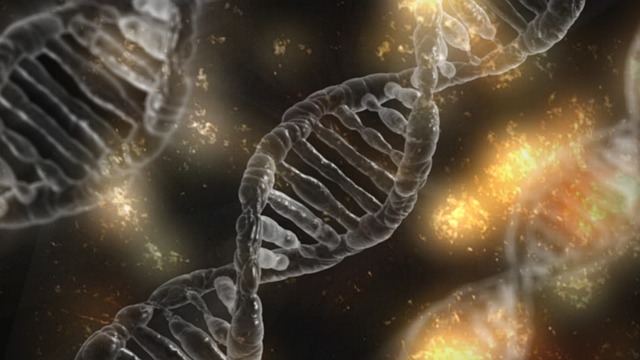From the past few decades, a substantial shift has taken place in the etiology of disorders affecting mankind where ecologically related diseases have decreased significantly, however, non-communicable disorders and genetic disorders have become a prominent cause of mortality and morbidity.
There are numerous factors that increase the possibility of a genetic disorder and one of the most prominent factors is the existence of a disorder among family members. The existence of the same disorder in more than one family member (particularly first-degree relatives), stillbirths, multiple miscarriages and childhood deaths are all indicative of a genetic disease. Moreover, family history of dementia, cancer and heart disease in two or more relatives at young ages may also advocate a genetic predisposition. Other medical symptoms that are indicative of a genetic disease consist of congenital abnormalities and developmental delay/mental retardation.
Genetic Disorders are therefore mainly classified as:
- Inherited: This is typically in born i.e. they are passed to the children from parents.
- Acquired: This is caused by genetic mutations that occur during the growth of the egg, sperm, or embryo.
While many genetic disorders appear during infantile, the same shouldn’t completely be ruled out in adolescents and/or adults. Every so often a genetic condition can remain concealed and undetected for quite a few years until an event (could be pregnancy or puberty) that triggers the start of symptoms or the growth of toxic metabolites that eventually manifests into disease. In such cases, a comprehensive physical examination should be performed considering the detailed family history along with a referral to a genetics specialist, if specified.
There are numerous checkpoints and diagnostic tools for genetic disorders:
Carrier Testing:
Carrier testing is mostly suggested to individuals who have a family history of a genetic disease and to those with an increased risk of specific genetic conditions within ethnic groups. This primary test help couples to know whether or not they are carrying or are at a risk of passing any genetic condition to their kids.
Prenatal Diagnosis:
The prime function of prenatal diagnosis is to detect changes in a foetus’s chromosomes or genes. It is highly recommended to couples with an increased risk of having a new-born with a chromosomal or genetic disorder.
There are mainly two types of Prenatal Tests for Genetic Disease:
Prenatal screening tests: The screening tests at the prenatal stage helps in finding out the probability of genetic conditions in the foetus. In India, there are mainly two prenatal screening tests – Double Marker Test (conducted during 5th week of pregnancy) and Triple Marker Test (conducted during 12th week).
Prenatal diagnostic tests: The diagnostic tests are more advanced as they are capable of giving confirmatory results. It is done either through one of the two methods – amniocentesis or chorionic villus sampling (CVS).
- Amniocentesis is conducted anytime between 15 to 20 weeks of pregnancy. However, the test can be done until the day of the child’s birth. To perform the test, a slight amount of amniotic fluid is taken from the pregnant woman.
- Chorionic villus sampling (CVS) is conducted anytime between 10 to 13 weeks of pregnancy. The main benefits of Chorionic villus sampling over amniocentesis is that it is done much earlier and the results are ready for standard testing well before time.
Preimplantation genetic diagnosis is recommended to couples who are using in vitro fertilization and are at an increased risk of having a new-born with a chromosomal or genetic disease. This is performed before an embryo is transferred to a woman’s uterus mainly to check certain genetic disorders and mutations.
Newborn Screening:
This screening is primarily done to check for certain destructive or potentially fatal genetic diseases that are not apparent at birth but may develop later in infancy. Many of these are majorly metabolic disorders which hinder with the body’s use of nutrients to uphold healthy tissues. Any inherited or metabolic disorders can always limit an infant’s mental and physical development. Early detection and treatment can help prevent physical disabilities, intellectual impairment and/or life-threatening illnesses.
Prognostic/ Diagnostic:
Genetic tests are used to check a diagnosis in a symptomatic person or to screen prognosis of a disorder and response to treatment.
Predispositional/ Predictive:
These tests are used to recognize individuals at a risk of acquiring a disease prior to the onset of symptoms. So, if an individual has a family history of a disease in particular and an intervention of the same is available to avert the onset of that disease or minimize it severities, these tests act as a predictive measure.
Technologies used for Genetic Testing to prevent Genetic Disorders
When it comes to prenatal and genetic diagnostic testing, there are a number of technologies used today. Your genetic counsellor or obstetrician can assess and assist in selecting the tests that are most suitable for your condition:
Karyotype: If there are any damaged, extra or missing chromosomes, it can be detected by Karyotype. The reports come within one or two weeks.
Fluorescence in situ hybridization (FISH): This genetic testing is used to spot common aneuploidies involving chromosomes 21, 18, and 13 along with the X and Y chromosomes. Unlike Karyotype, the reports come within two days. If the tests indicate positive results, it can then be confirmed by the above-mentioned karyotype tests.
Chromosome microarray analysis: This test looks for diverse types of chromosome complications, throughout the entire set of chromosomes. It can also find chromosome problems that karyotyping might miss. Results are mostly ready in a week.
DNA testing: DNA testing is to check the precise gene mutations. For instance, if you and your spouse are carriers of a certain gene like cystic fibrosis gene, you can go for diagnostic testing for this exact mutation.
Advantages of Pre-Marital Genetic Screening:
A premarital genetic test is conducted on soon-to-be married couples for infectious, transmissible and genetic diseases to prevent risks of transmitting any disorder to each other and/or to their progeny.
- It helps couples to understand their genetics which alerts them to take the required precautions and treatment. Further, it also helps in preventing disability as well as delivery of a baby with abnormalities
- Prevent miscarriages, infertility stillbirths and other medical conditions in couples
- Prevent marriages between partners of same genes carriers (heterozygous carriers) e.g. Haemophilia, Sickle Cell Disease, and Thalassemia.
- The tests bestow the couple with counseling and unlimited medical as well as mental support to the soon-to-be-married couple.
- It guarantees healthy marriage along with an awareness of the probable diseases that may inflict their kids.
Reference:
A brief educational seminar for parents on “Genetic Counselling for Management and Prevention of Genetic Disorders” by Dr. Bani Bandana Ganguly (Head of MGM Center for Genetic Research & Diagnosis) organized by Swami Brahmanand Pratishthan, a school for special children located at Belapur, Navi Mumbai on 3rd December 2017, on account of “International Day of Persons with Disabilities”.
Understanding Genetics: A District of Columbia Guide for Patients and Health Professionals.
Prenatal Genetic Diagnostic Tests



